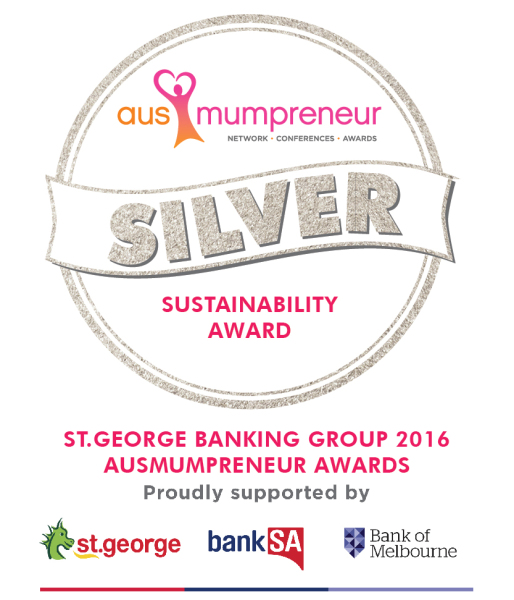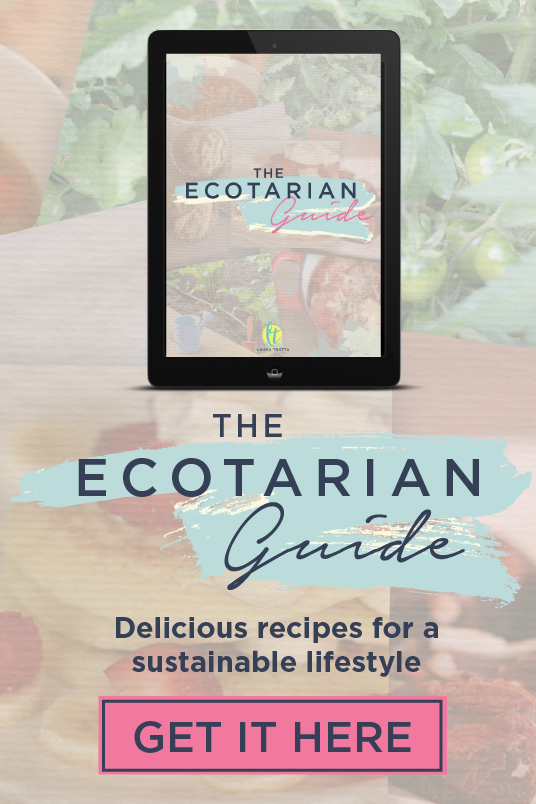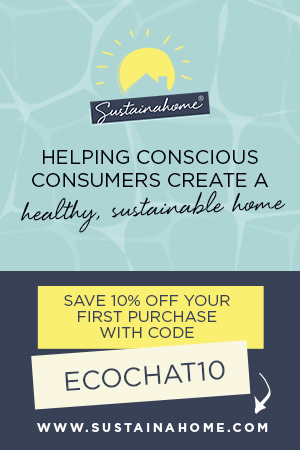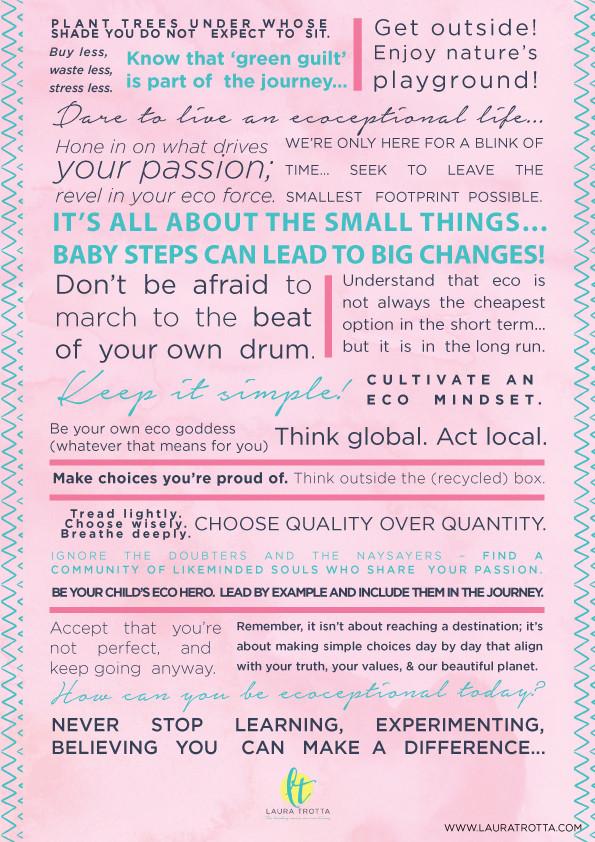Recently I presented at the online Ecopreneur Summit, sharing tips and strategies for how to grow an eco business online and specifically, how to package your knowledge into a leveraged offer. The second presentation I gave in the summit covered the specifics of how to make your own business more sustainable. It’s this presentation on How to Grow a Green Business that I’ve decided to share with you in this podcast episode.
I also share details of my new Eco Business Collective, a major focus for me for 2021 and beyond. Eco Business Collective will become the premier online membership community for ecopreneurs and eco business builders. Members receive personalised coaching support and a network of connections to help them grow a thriving and profitable eco business online.
If you’re growing an eco business and would like the support of an experienced environmental engineer and eco business coach (that’s me!) plus the support of a growing community of eco business builders, click HERE for more information on the Eco Business Collective. For a limited time you can take advantage of a FREE 30-day trial and lock in foundation member rates for the duration of your membership!
Click HERE to join the Eco Business Collective
Podcast: Play In New Window
Subscribe in Apple Podcasts | Google Podcasts | Stitcher | Spotify
HOW TO GROW A GREEN BUSINESS
This presentation was given at the Ecopreneur Summit, held online in December 2020.
Today I’m going to cover the business case for building a green business, the benefits of building a green business, four ways to make your business more sustainable, and because so many of you are service-based eco businesses, I’m going to share five impactful things you can do right now to make your business more sustainable.
MY ECO BUSINESS STORY
Before I jump in, I want to share a little bit about my eco business story because there might be some of you that don’t know where I’ve come from and why I do what I do. I am an environmental engineer and have worked in the industry for 13 years, monitoring and managing emissions from some of our biggest polluters. I also became a trained ISO 14001 Environmental Management Systems auditor, and I developed certified environmental management systems for some of the largest industrial sites in Australia.
My passion for sustainability and the environment flowed into motherhood. When I went on maternity leave in my early thirties, 11 years ago now, back in 2009, I founded one of Australia’s first online eco-baby stores and eco-parenting resources. And that was called Sustainababy, which I ran for six years. My business grew quickly and within 18 months it was paying me a wage. I had employed a small team, I’d won state and national awards in Australia for sustainability and innovation, and not surprisingly, because how well the business was going and how quick it was growing, I decided to take an extended career break from environmental engineering so I could just focus on my growing family because I had just had another child and also nurture my growing eco business.
To further support my customers and also to get some leverage in my product-based business at the time, I launched my first eco living course – Home Detox Boot Camp. That was back in 2014, when there weren’t that many e-courses on the market. This course has since guided hundreds of people all around the world to transition to a toxin-free lifestyle.
The success of this course meant I had to simplify my business (I couldn’t exactly simplify my family!) and I did this by selling my product-based business, Sustainababy, to focus on Home Detox Boot Camp and my other sustainable living programs – Greenhouse Home Energy Blitz & Self Sufficiency in the Suburbs, as well as my podcast Eco Chat which is now over 5 years old.
After I sold Sustainababy, I started coaching countless eco and impact-driven entrepreneurs and consultants and coaches, not just to grow their businesses online, but specifically to help them package their expertise into leverage offerings and also reduce their eco footprint in their businesses as well.
In 2017 I was selected to travel with the largest contingent of female scientists to Antarctica in the Homeward Bound Leadership Initiative, which was a 12 month leadership development programme. This fulfilled a lifelong dream for me to travel to Antarctica. My uncle is an engineer and he worked in Antarctica in the 1980s, and I really wanted to follow in his footsteps. Travelling to Antarctica really reignited my passion for environment, not that it was waning, but just made me even more gung-ho to do everything I can in my day-to-day life and in my working hours to make the world a more sustainable place.
I was also chosen to train with the former US Vice President, Al Gore, and become a Climate Reality Leader, which I did in 2019. And I’ve gone further on and I actually mentor other leaders now for the Climate Reality Project. And that was really to step up on my own personal climate action. So that’s just a really quick snapshot of my sustainability and my eco business journey.
So these days I coach eco businesses, I still have my online sustainability programmes and I do some consultancy work as an environmental engineer as well, just to keep my finger in that pie. I really do love helping individuals and businesses become much more sustainable.
WHY BUILD A GREEN BUSINESS
So what exactly is a sustainable business? In 2015, the world leaders at the United Nations agreed on 17 goals, that if achieved, that would create a better world by 2050. These goals focus on eradicating poverty, fighting inequality and ending climate change, and many others. Sustainable businesses of those which are making concerted efforts to achieve one or more of these goals and actively creating a better world.
Large multi-national global business (think IBM, Microsoft, large mining companies) have goals and policies to achieve every single one of these goals but that may not be realistic for a small to medium sized business. And particularly if you’re a solo ecopreneur.
My advice is just if you’re a small or a medium eco business that wants to align your sustainable business goals with the United Nations Sustainable Development Goals, you might, for example, just start with number 12 – responsible consumption and production, or even goal number 13 – climate action, and focus your business on achieving that goal. I don’t want you to feel overwhelmed. And I want to essentially give you permission just to pick off one piece of that pie.
There are so many reasons and so many business cases and so many awesome benefits of growing a green business. According to the Harvard Business Review, 50% of consumer packaged goods from 2013 to 2018 came from sustainability marketed products. Consumers are voting with their dollars and they’re making this shift, and I saw this in my first business, Sustainababy in 2010. On my very first day, I had 11 sales and it just went gung-ho from there, I didn’t even market, I just launched my website and the Google algorithm just picked it up and people found me from day one. I was out having a coffee with my mum friends hugging my six month old baby. And I came home and there were 11 orders to pack. So I hit the ground running, but it’s continued to grow since that time. I’ve seen this growth personally and also seen it with just with the sheer number of eco, product-based businesses on the market.
A 2020 survey by the Fifth Estate found that 90% or 9 in 10 Australian consumers are more likely to purchase ethical and sustainable products. And this trend is happening all around the world. The US sustainability market is actually projected to reach US $150 billion in sales just by next year. So this is a global trend it’s going up and up. It’s bucking other trends, even in the global financial crisis way back in 2012, it was sustainability and eco brands that were growing when other businesses were declining, so you all know this, you’re all creating eco businesses. This is the place to be, to make an impact, but also create a profitable business that’s going to be around for the long term.
Now consumers sustainability expectations have flowed to service-based businesses, where a growing number of customers are prepared to walk away from organisations that don’t align with their strong eco values. I see this in the environmental engineering space, there’s a lot of graduates that are just choosing not to work for companies that aren’t leading the way on sustainability. And they are been quite vocal about it as well. Even boycotting particular companies at university expo days!
Consumers are voting with their dollars. and voting with their actions. Successful businesses of the future will need to be proficient at both sustainability and profitability to survive and smart businesses, smart business owners (which you all are!)… You’re not going to wait for that future to arrive, you’re doing that now.
There are other benefits of building a green business too. For those of you who have employees it’s proven that you’ll get increased employee satisfaction and retention. Many employees take pride in working for a business that’s responsible in its resource use and gives back to society. High employee morale yields better efficiencies and retention, which both help your bottom line as well.
You’ll also get improved efficiency and profitability because when you become a more sustainable business, you just start to get very good at identifying waste streams in your business and eliminating them. It can be as simple as reducing your energy or water consumption, or as complex as identifying opportunities to reprocess waste products in your production line, into sellable products if indeed you’re a products based business.
Being a green business also improves your marketing capacity. Businesses with strong environmental credentials throughout all their processes have maximum marketing advantage and are best placed to attract green consumers and even establish new markets.
Lastly, you’ll have an improved ability to manage risk as an eco business as well. Your focus alone enables your business to proactively address new environmental requirements that are going to be coming in from vendors and suppliers, your customers and even your stakeholders. You’ll be able to anticipate where things are going to move in the future and be proactive and move before legislation or community expectations get there as well. You can lead and be the change.
ACTIONS TO MAKE YOUR BUSINESS MORE SUSTAINABLE
The quickest and the easiest way for a small business to make a bigger impact and gain some eco credibility is to support environmental charities. Now this can be monetary donations and/or volunteer hours. You can get out there and help the wildlife after the bush fires, participate in Clean Up Australia Day, pick up plastic on beaches or even organise some community events. Of course, it doesn’t always have to be about money but I just want to let you know that there are many certified organisations out there that make it even easier to support environmental charities. A very good one is that 1% For The Planet.
1% For The Planet basically works by businesses committing to giving 1% of their gross sales each year to approved non-profit partners through a variety of support. And this is a lot better and a lot more transparent than businesses saying, we’ll donate 10% of profits or things like that. When you’re donating a percentage of your gross sales, that’s before your expenses and everything are taken out. 1% For The Planet is much more transparent and you can’t get around it with creative accounting, which a lot of businesses do when they try and give after-profit amounts away.
Another thing you can do is offset your carbon emissions. There are a growing number of organisations that facilitate the offset of carbon emissions for businesses if it’s not in your skillset or your technical expertise. By offsetting your emissions, it’s just one way that you can demonstrate your own commitment and your business’s commitment to the Paris Agreement, which is all about reducing greenhouse gas emissions to keep global warming below one and a half degrees Celsius.
I really encourage medium to large businesses to gain Carbon Neutral Certification through a certification body, such as Climate Active in Australia or international body Carbon Neutral. This just allows for accuracy and transparency. So obviously if you’re a very small business, I would just seek to offset your emissions and buy carbon credits and there’s plenty of organisations that do that, but if you’re larger, I really encourage that certification. It’s an audited process then. And you could just really put your hand on your heart and say, we haven’t left any emissions on the table.
The third way to make your business more sustainable really comes down to casting a critical eye over your business processes. This can be undertaken by the following steps:
-
Construct a map of your business processes
-
Identify inputs, outputs and wastes for each process step
-
Review each of the inputs, outputs and wastes and question if it can be replaced by a more eco-friendly alternative or even eliminated

The more complex your business, the more involved this process will be. A simplified example of this process, based on my first business online eco business Sustainababy, is shown below:
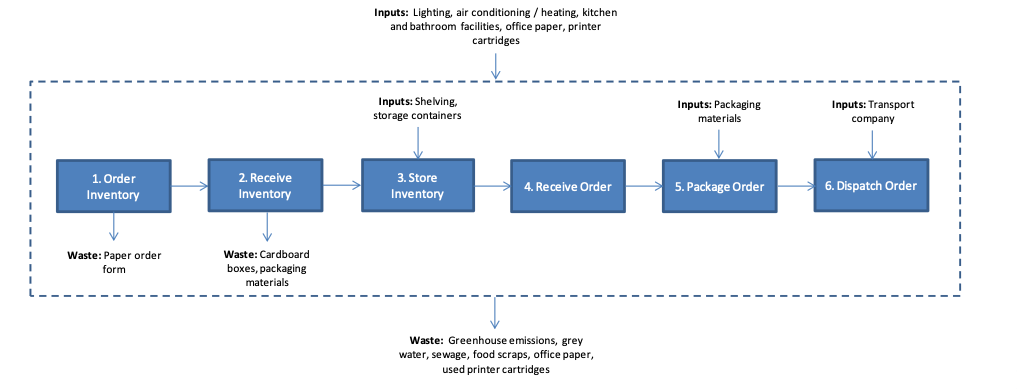
Opportunities for the above business to reduce its wastes include:
-
Working with all suppliers to place orders electronically (eliminates paper order form)
-
Reusing packaging materials from incoming goods in customer orders and recycling boxes that cannot be reused.
-
Recycling office paper and printer cartridges.
Opportunities for the above business to reduce its resource usage include:
-
Purchasing electricity from renewable sources or installing solar energy panels on premise
-
Installing timers on lights and fans (e.g. in bathroom) so automatically turn off when not in use
-
Increasing natural light on premise and install energy-efficient light bulbs
-
Reducing double handling, packaging and transport of goods by drop shipping large items (e.g. furniture)
-
Dispatch orders on every other day to reduce transport trips (e.g. courier pick up or trips to the Post Office)
-
Using green courier companies for the dispatch of orders
-
Installing a compost bin in kitchen area for food scraps.
For each of these wastes, I looked at a way to improve the process by either eliminating or reusing. For receiving inventory waste, the cardboard boxes and packaging material, they were all reused in packaging the order. And customers of eco stores were very accommodating of this because they don’t necessarily have to have everything beautifully wrapped in all the stickers and everything if you’re reusing a box. They get it because you’re looking to minimise your footprint, and that’s what they’re looking for as well.
And you can reduce double handling and packaging of goods by drop shipping. So it goes straight from the manufacturer to the client. I did that for large items in my product-based business. Dispatching orders every other day, not every day to minimise transport by couriers and that pickup and particularly and even in a service-based business, if you’re sending off packages every now and then, use green courier companies for the dispatch of orders. Sendle, for example, is 100% carbon neutral. So looking into your suppliers and seeing if you could choose ones there that are more sustainable.
If you’re a service-based business focus on reducing the impact of your office space, even if you’re working from home. So purchasing electricity from green energy suppliers or installing solar energy panels and batteries on your premises. Installing timers on lights and fans, for example, in bathrooms that automatically turn off when not in use. Increase natural light and install energy efficient, energy efficient LED light bulbs.
The fourth way you can make your business more sustainable is really to choose eco and sustainable options in ALL of your business activities. Now this comes down to being a leader and having integrity, walking your talk, as well as staying on brand. Failing to choose eco options in all of your dealings will impact your authenticity. Some examples here are posting parcels in compostable satchels, not plastic ones. Now I just recently was a judge in the Australian Non-Toxic Awards and I would say half of the products came to me in compostable package satchels, which was great. But some eco brands they still sent their orders to me in a plastic satchel. So straight from the top, like, is this company serious about sustainability? So little things like that.
All your touch points have to be eco and sustainable. Print flyers on recycled board with vegetable-based inks, if you print anything at all. When I started my first business back in 2009, I had to have flyers as my promotional material to put into things like baby bags. I hunted down a local printer that would print on 100% recycled board in vegetable-based inks. My graphic design, subcontracted at the time said “You’re mad, Laura, you’re paying three times more. You know, just go to Visy Print. Choose the easy option where we get all our business cards and everything done.” I said “I’m an eco business, I’m going to an eco printer.”
You can meet clients in eco cafes, support social-enterprise catering organisations. You can offset the emissions from your flights, if you travel. Everything that you do, just choose the eco and sustainable option.
FIVE IMPACTFUL THINGS YOU CAN DO RIGHT NOW TO BE MORE SUSTAINABLE
I know that so many of you or most of you are service-based eco businesses. So you can run a paperless or zero waste office, have everything in the cloud, not printing anything off. I don’t even have a printer, you can do the same.
I encourage you to reduce your electricity consumption, choose a green electricity provider. If you can, offset your remaining carbon emissions as well. And of course, if your budget allows, install solar panels and battery, we’ve got solar on our house. We haven’t yet got battery, but that’s in our list of to-dos, which hopefully comes up in the next 12 months or so.
Choose a carbon neutral internet provider. They’re out there, as are carbon neutral mobile phone providers for all of your services.
Support other eco businesses, the caterers, the gift providers, the copywriter who’s carbon neutral. Your impact adds up very quickly.
Consider joining 1% For The Planet, or even becoming a Certified B Corporation. That’s putting your actions where your values are. And another thing you can do, particularly if you’re a little bit bigger and have employees, encourage your employees to choose a sustainable superannuation fund. In Australia you can’t mandate the fund that your employees choose, but you can always encourage it. Or ensure your default super fund for your company (if people don’t have one)is an ethical one that invests in sustainable projects.
OVER TO YOU!
If you’re keen to learn more about how to make a bigger impact by making your business much more sustainable, particularly online business, and even your own actions day to day, let me help you.
You can tune in to my Eco Chat podcast for sustainability and eco business tips. Eco Chat is 5 years old now and there are close to 200 episodes for you to listen to.
You can also join my Eco Business Collective for ongoing support in marketing online business and sustainability as you grow your eco business. So I help businesses out with both and you are definitely welcome to join Eco Business Collective.
Eco Business Collective will launch and get started on Wednesday 20th January 2021. If you sign up for the FREE 30 day trial prior to then, that’s going to be our start date. If you absolutely love your 30 day trial and you want to continue in the Eco Business Collective at the end of that trial you will be invited to join that Collective at a special foundation member rate. You’ll have the opportunity to lock in this rate for the duration of your membership.
That’s pretty much it. To access your FREE 30 day trial of the Eco Business Collective where you get to work with me in person, which I would absolutely love, head on over to ecobusinesscollective.com
And regardless of whether or not you join Eco Business Collective, keep tuning in to Eco Chat. I wish you all the very best on your eco journey regardless of whether you are growing an eco business or not because we need all of us to keep taking those sustainable steps forward to make green mainstream.
- Sustainable Home Design- factors to consider to maximise sustainability - July 28, 2022
- Advantage and Disadvantages of Tiny Houses - May 31, 2022
- How School Strike 4 Climate is Empowering Youth to Fight for Their Future - May 1, 2022

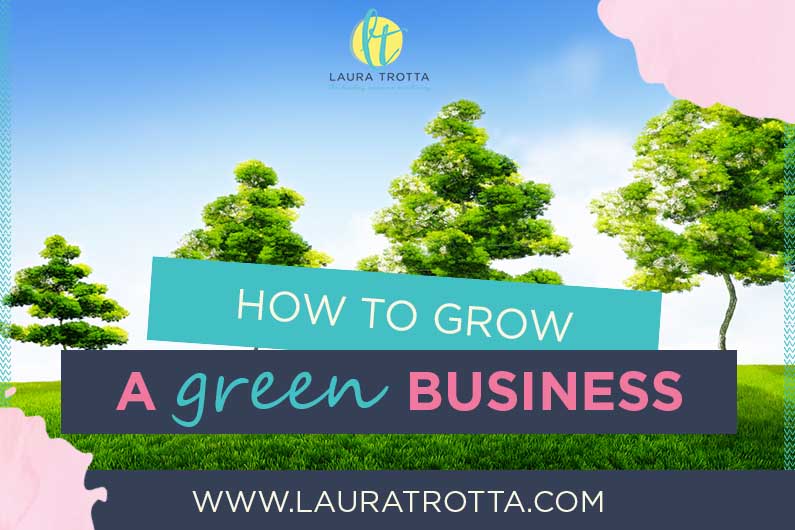
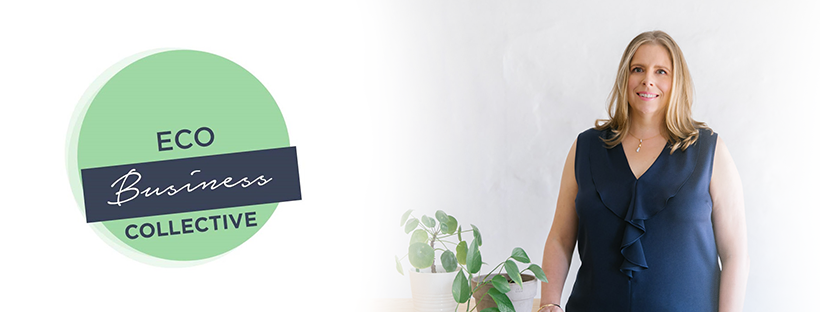
 Laura Trotta is one of Australia’s leading home sustainability experts. She has a Bachelor of Environmental Engineering, a Masters of Science (in Environmental Chemistry) and spent 11 years working as an environmental professional before creating her first online eco business, Sustainababy, in 2009. She has won numerous regional and national awards for her fresh and inspiring take on living an ‘ecoceptional’ life (including most recently winning the Brand South Australia Flinders University Education Award (2015) for the north-west region in SA and silver in the Eco-friendly category of the 2015 Ausmumpreneur Awards). With a regular segment on ABC Radio and with her work featured in publications like Nurture Parenting and My Child Magazine, Laura is an eco thought leader who’s not afraid to challenge the status quo. A passionate believer in addressing the small things to achieve big change, and protecting the planet in practical ways, Laura lives with her husband and two sons in outback South Australia.
Laura Trotta is one of Australia’s leading home sustainability experts. She has a Bachelor of Environmental Engineering, a Masters of Science (in Environmental Chemistry) and spent 11 years working as an environmental professional before creating her first online eco business, Sustainababy, in 2009. She has won numerous regional and national awards for her fresh and inspiring take on living an ‘ecoceptional’ life (including most recently winning the Brand South Australia Flinders University Education Award (2015) for the north-west region in SA and silver in the Eco-friendly category of the 2015 Ausmumpreneur Awards). With a regular segment on ABC Radio and with her work featured in publications like Nurture Parenting and My Child Magazine, Laura is an eco thought leader who’s not afraid to challenge the status quo. A passionate believer in addressing the small things to achieve big change, and protecting the planet in practical ways, Laura lives with her husband and two sons in outback South Australia. 